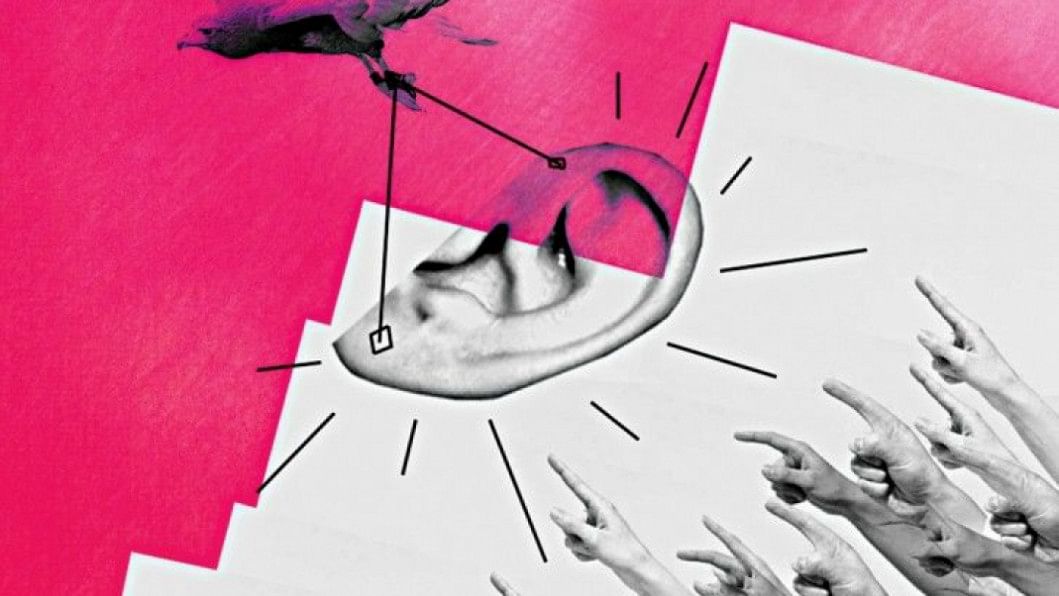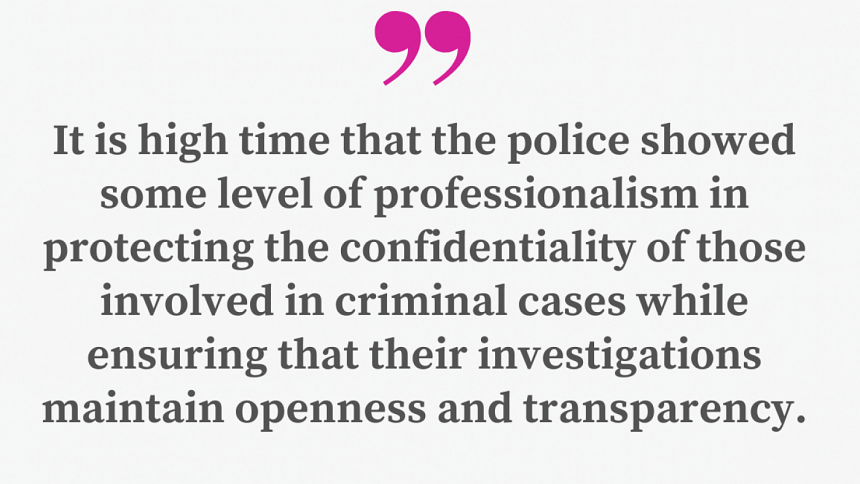Spare Fardin the burden of social judgement

One of our fundamental rights, as enshrined in the constitution, is that all citizens are entitled to equal protection of the law, and have the right to a speedy and public trial by an independent and impartial court or tribunal established by law.
Nowhere in our constitution – or in any legal document, for that matter – does it say that before the wheels of justice have barely begun to turn, and before there has been a proper investigation into whatever crime has been committed or law has been broken, the facts of that case should be wide open to the public for a trial by media.
Yet, that is what we continue to witness, time and again, during high-profile criminal cases in Bangladesh.
A case in point is the Banani Raintree Hotel rape investigation, where instead of scrutinising the rapists, we put the victims under a microscope – so much so that even the judge in her verdict felt compelled to mention their social lives and how they had gone swimming at the hotel. As if somehow exercising their personal liberties and engaging in behaviour that would only be considered inappropriate in a patriarchal society had expunged them of their innocence.
This is not the first time that those involved in criminal cases – not just suspects, but also victims – have been pre-judged and stigmatised for their background/behaviour. Too often, we see the tides of sympathy turn against people who are considered "delinquents," long before they face trial. This happened widely in 2018, when the government's anti-narcotics drive led to 466 extrajudicial deaths, but demands for justice only really surfaced when it was recorded that an "innocent" person (i.e. not someone linked with the drug trade) was killed.
An involvement with drugs specifically creates a lot of stigma in our society, where we are yet to acknowledge addiction as a public health issue. We still view it through the lenses of crime and anti-social behaviour, with no sympathy for the psychological (and often, physiological) battles being fought by a person addicted to substance abuse. And we have seen far too many examples of drug peddlers and addicts not being treated as equal in the eyes of the law, while the drug lords making millions from this trade continue to be above it.
Perhaps that is why it was so heartbreaking to see murdered Buet student Fardin Noor's father tearfully proclaim to the media that his son could never have been buying drugs before he died, after a number of media outlets quoted an anonymous source claiming that his death was the result of a quarrel with drug dealers in Chonpara.
In the midst of mourning their son's sudden death, this family is now being forced to also defend his character in a judgemental and often unforgiving society.
I have zero proof to claim that Fardin was completely sober, or an addict, or a casual user. But what is of concern is that these media outlets have no way to substantiate these claims either. In fact, on November 12, the additional commissioner of the Detective Branch of Dhaka Metropolitan Police told the press, "We are still not saying he was killed (while) trying to buy drugs."

So, who exactly was the source who confirmed that he was buying drugs, and why did they share this information with the media? And to what end did some sections of the media choose to make this information public?
There is a valid argument to be made that the media has a responsibility to share details of police investigations to create a check and balance against abuse of power, to guard against those with pull using the system to make their crimes disappear.
But we also have a responsibility to use our judgement on whether the information shared is hashing out sensationalist details of a crime, or whether it is highlighting patterns and contexts at an institutional level to add something meaningful to the conversation.
I personally feel we are wasting time by discussing Fardin's activities in a way that, as his father put it, "breaks the morale of those demanding trial." Instead, couldn't we be questioning why known Chonpara drug gang member City Shaheen – who certain media outlets have claimed could be a key witness and possibly a potential suspect – was killed in crossfire on November 10, instead of being brought in for questioning?
There is an urgent need for us to discuss the role the media can play while reporting on crime. We must draw a line between reporting that is in the public interest and that holds the police and the justice system to account, and reporting that reproduces sensationalist details and unnecessarily impinges on the right to privacy of everyone involved.
It is also high time that the police showed some level of professionalism in protecting the confidentiality of those involved in criminal cases while ensuring that their investigations maintain openness and transparency.
We need to acknowledge that suspects, until they are proven to be criminals, should also be accorded certain rights.
It should cause all of us concern that an MD of a corporate conglomerate can evade any accountability despite having very close ties with a suspected murder victim, whereas the friend of a murder victim can be taken to remand and denied bail for being the last person to see him alive. From where I'm standing, it doesn't look like the latter was given equal protection of the law.
Again, whether or not Fardin's friend has any links to his murder is something I cannot speculate on. However, if it turns out her role is more as a witness than a suspect, the memory of being implicated in this crime will continue to hound her, given that police showed no qualms in releasing her name, age, and place of education to the public. Is it any wonder, then, that one of the major reasons cited for the massive delays in the justice system is the near-impossibility of getting witnesses to cooperate with investigations and take the stand?
Public opinion, at the end of the day, can be an extremely partial and brutal court of judgement. When sharing details of criminal investigations, the police and the media need to do their bit to spare everyone involved from being put on public trial.
Shuprova Tasneem is a member of the editorial team at The Daily Star. Her Twitter handle is @shuprovatasneem

 For all latest news, follow The Daily Star's Google News channel.
For all latest news, follow The Daily Star's Google News channel. 







Comments